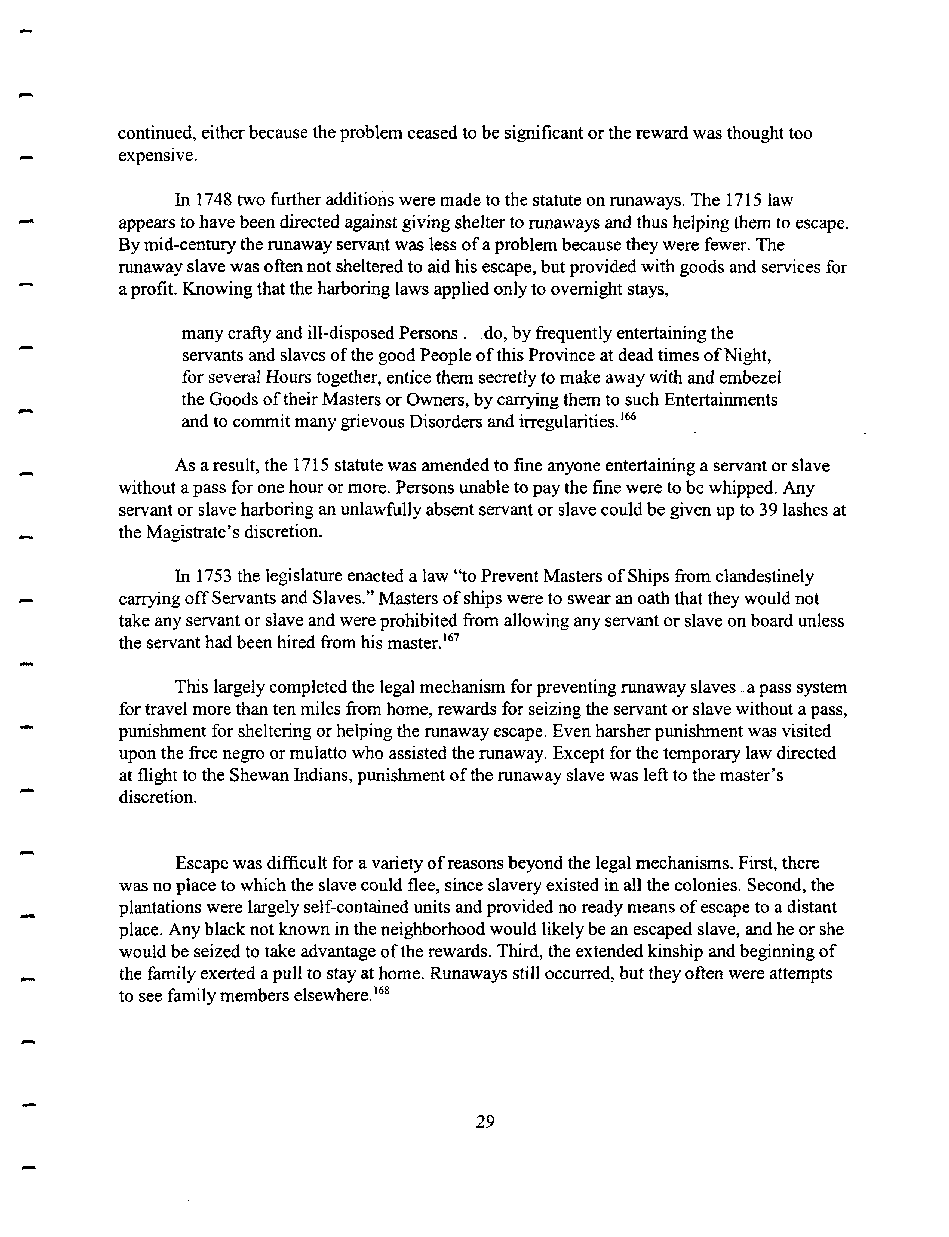|
continued, either because the problem ceased to be significant or the reward was thought too
expensive.
In 1748 two further additions were made to the statute on runaways. The 1715 law
appears to have been directed against giving shelter to runaways and thus helping them to escape.
By mid-century the runaway servant was less of a problem because they were fewer. The
runaway slave was often not sheltered to aid his escape, but provided with goods and services for
a profit. Knowing that the harboring laws applied only to overnight stays,
many crafty and ill-disposed Persons . do, by frequently entertaining the
servants and slaves of the good People of this Province at dead times of Night,
for several Hours together, entice them secretly to make away with and embezel
the Goods of their Masters or Owners, by carrying them to such Entertainments
and to commit many grievous Disorders and irregularities.166
As a result, the 1715 statute was amended to fine anyone entertaining a servant or slave
without a pass for one hour or more. Persons unable to pay the fine were to be whipped. Any
servant or slave harboring an unlawfully absent servant or slave could be given up to 39 lashes at
the Magistrate's discretion.
In 1753 the legislature enacted a law "to Prevent Masters of Ships from clandestinely
carrying off Servants and Slaves." Masters of ships were to swear an oath that they would not
take any servant or slave and were prohibited from allowing any servant or slave on board unless
the servant had been hired from his master.167
This largely completed the legal mechanism for preventing runaway slaves -a pass system
for travel more than ten miles from home, rewards for seizing the servant or slave without a pass,
punishment for sheltering or helping the runaway escape. Even harsher punishment was visited
upon the free negro or mulatto who assisted the runaway. Except for the temporary law directed
at flight to the Shewan Indians, punishment of the runaway slave was left to the master's
discretion.
Escape was difficult for a variety of reasons beyond the legal mechanisms. First, there
was no place to which the slave could flee, since slavery existed in all the colonies. Second, the
plantations were largely self-contained units and provided no ready means of escape to a distant
place. Any black not known in the neighborhood would likely be an escaped slave, and he or she
would be seized to take advantage of the rewards. Third, the extended kinship and beginning of
the family exerted a pull to stay at home. Runaways still occurred, but they often were attempts
to see family members elsewhere.168
29
�
|

